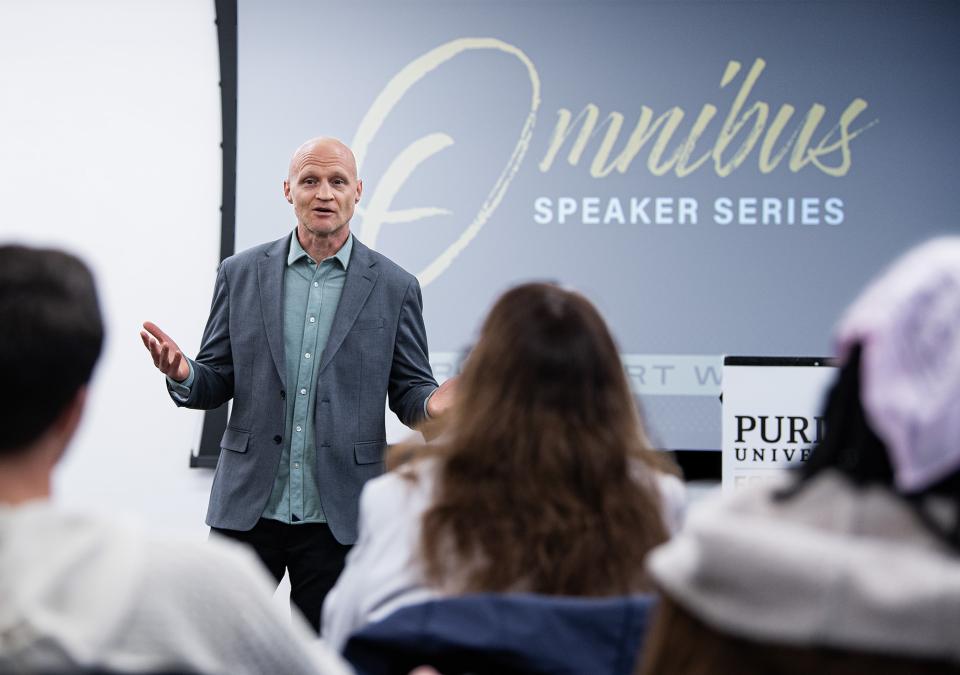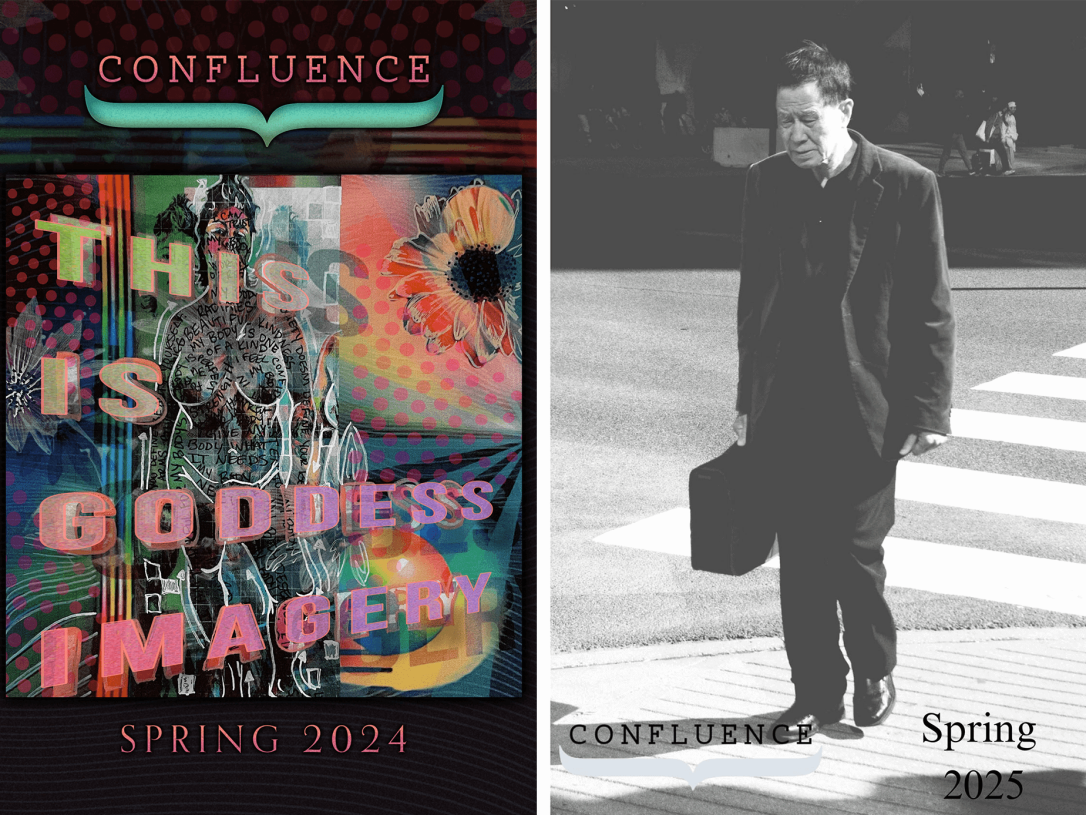
PFW Story
Co-founder of The Onion peels back layers of satirical comedy
Scott Dikkers was brash, bold, and a little profane as he described becoming a co-founder of The Onion, a satirical/social commentary website. As part of the Purdue University Fort Wayne Omnibus Speaker Series, Dikkers spoke Thursday afternoon with a class of honors students before his evening presentation “The Funny Stories Behind the Funny Stories” in the Auer Performance Hall.
Like almost any nationally recognized comedian, Dikkers’ language was sometimes R-rated as he challenged his audiences to think with an energetic, friendly demeanor that made his biting wit even more effective. His words may have been audacious, but his style was open, patient, and encouraging to his questioners.
“We live in a world where we can’t trust our media or our politicians,” Dikkers said. “We live in a post-truth world, and in a post-truth world, the only news that makes sense is the fake news.”
When The Onion started as a Madison, Wisconsin, newspaper in 1988, it wanted to parody USA Today, and as editor, Dikkers’ goal was to be compared to The Harvard Lampoon.
“All of our writers were misfits, losers, and outcasts,” he said. “They all came from broken homes, and I loved these people. They were bitter, hateful, and had no prospects in life. Perfect!”
The more bizarre and wilder the stories the writers created, the more attention and readers the newspaper attracted, especially after going online only in 2012. Dikkers described how ribald arguments with an aide to the governor of Wisconsin led to more funny stories. Sometimes the humor and antics may have seemed childish, but they evolved and found a niche and broader audience among the country’s news consumers.
Though no longer officially associated with The Onion, Dikkers spends his time writing books, teaching the next generation of humorists, and speaking on tours. Satire, he preached, is even more critical today.
“So much of what we see in the media is not really news, it’s some narrative that some group is pushing,” Dikkers said. “It’s very important that we know what the bias of the media outlet is, and who owns it. If you look at all the media, from Fox News to The Washington Post, to The New York Times, look at who owns it and who they would hire. If you think you are getting the real story, you are almost never getting the real story.
“The role of comedy in all that is to point all of that out and to mock all of that and those media companies and organizations. The Onion by its very idea mocks the idea of a news voice. The Onion doesn’t have an agenda, it’s just a bunch of writers in a room trying to write things that are funny. All these other news organizations have an agenda.”
Comedy’s role, Dikkers continually stressed, is to comfort the afflicted and afflict the comfortable.
“The Onion is just this tiny voice in the darkness, trying to say, ‘Hey, be skeptical, think a little bit, and don’t take it all at face value,’” he said.
At times, Dikkers’ attitude about the state of the country was pessimistic, cynical, and passionately skeptical, saying his generation gave up on the future of the country—but he likes the current generation of students.
“They are really progressive, they are really passionate, and they can see through bullshit in a way that previous generations weren’t able to or didn’t want to,” Dikkers said. “My fear is that it might be too late. The world has gone to hell in a handbasket, and if you listen to any kind of science at all, how are human beings going to survive in any way on this planet if we get six degrees above baseline centigrade? How do you grow plants? The hockey stick curve is really clear, and nobody is doing anything about it.”
Dikkers’ talks were all about making his audiences think critically of their media sources and their government, but he didn’t provide potential answers for fixing problems.
Though the world seems to be careening out of control, and a huge swath of media consumers can’t tell the difference between real and fake news, Dikkers said anyone who listens and thinks critically can become a more informed voter and a better world citizen.
“Don’t believe everything you read,” he cautioned.
The 2022–23 Omnibus series concludes on April 25 with famed social justice activist and actor George Takei. Launched in 1995, the series has hosted nearly 140 speakers, thanks in part to the support of the English-Bonter-Mitchell Foundation.




